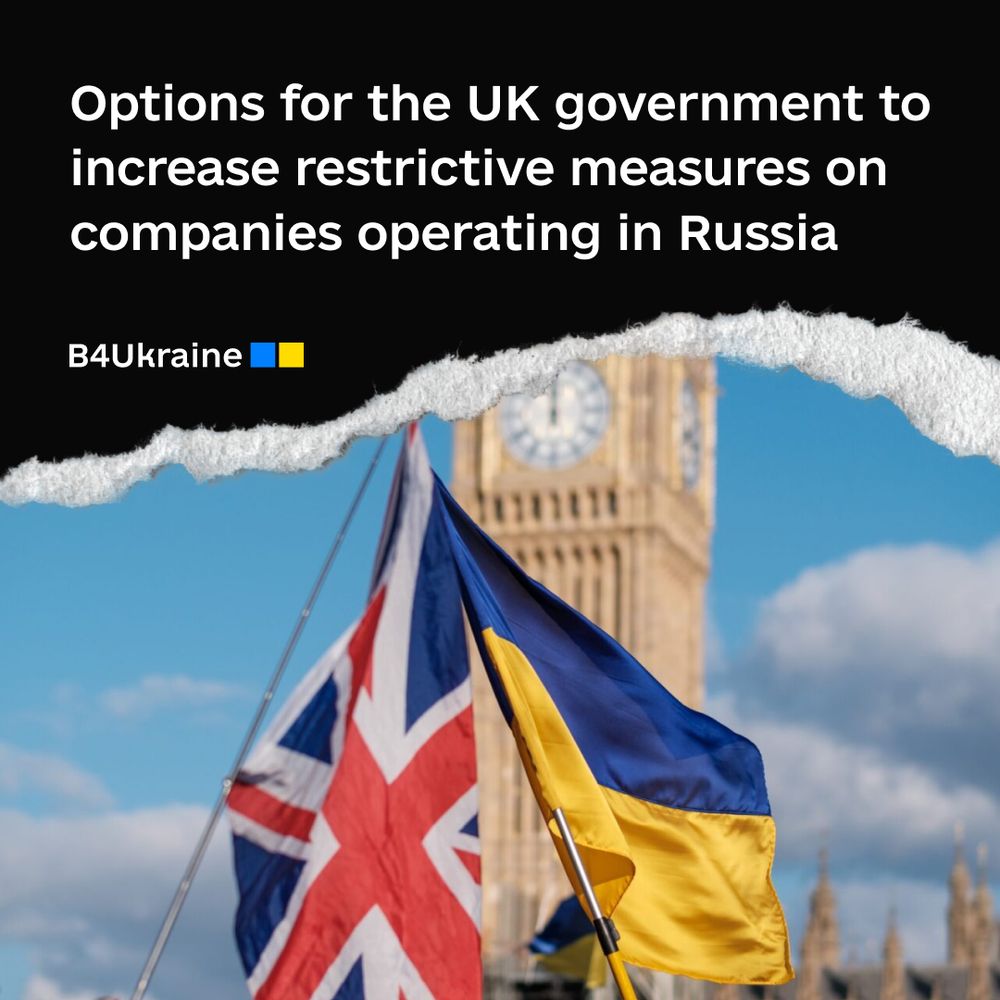
Business for Ukraine Coalition and the Kyiv School of Economics have submitted written evidence to the UK Parliament’s Treasury Committee, focusing on whether the financial sanctions instituted by the UK on Russia are comprehensive and effective in terms of the entities that have been designated and the entities that are required to comply with the rules.
The submission highlights how gaps in economic sectoral sanctions and government policy have allowed thousands of Western companies to continue doing business in Russia, indirectly financing the war of aggression against Ukraine and placing them at risk of complicity in Russia’s war crimes and crimes against humanity.
Options for the UK government to increase restrictive measures on companies operating in Russia
1. Publicly call on companies not covered by sanctions to responsibly exit the Russian market to avoid further financing the war and the risk of complicity.
2. Update the UK’s overseas business risk register to include a section on Russia and issue guidance that clarifies the expected standard of corporate conduct, and promotes ethical business practices that align with internationally accepted and endorsed human rights principles. See, for example, the US Business Advisory on Russia Risks and Considerations for Doing Business in the Russian Federation and Russia-Occupied Territories of Ukraine.
Any guidance must include an expectation to better define essential goods and services in the context of Russia as an aggressor state, alongside a call for companies to conduct heightened human rights due diligence as mandated by the UN Guiding Principles.
Where a company claims to be providing an essential good or service, the onus should be on a company to demonstrate that the goods provided are essential to the maintenance of life and cannot be provided on the local market, and how the actor will mitigate its proximity to human rights harms; or that their continued operations are essential to maintaining open access to the internet and information.
3. Stop any company still working in Russia from participating in tenders for projects related to Ukraine’s reconstruction and funded by the UK.
4. Oblige companies and other legal entities to disclose information on their business ties with Russia. Disclosure should include the existence of such ties; profits generated in Russia and/or from Russia-related transactions; taxes paid to the Russian budget; the identity of Russian counterparts, and the nature of the relationship; as well as compliance and human rights due diligence, and ‘essentiality assessments’ carried out by the entity doing business in/with Russia.
This should be a separate reporting obligation in addition to existing annual and interim reports and material development reporting. These reports should be submitted to stock market regulators or component sanctions authorities and published on companies’ websites.
5. Introduce a windfall tax on annual turnover for those businesses still present in Russia. Funds from the windfall tax should be used to finance Ukraine’s recovery and reparations for victims of Russia’s gross human rights abuses and violations of international humanitarian law.
In March 2022, the Committee published its report: Defeating Putin: the development, implementation and impact of economic sanctions on Russia.
The Committee is now undertaking a further inquiry on the UK’s financial sanctions on Russia.
Read the call for evidence to find out more about this inquiry